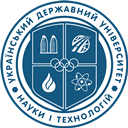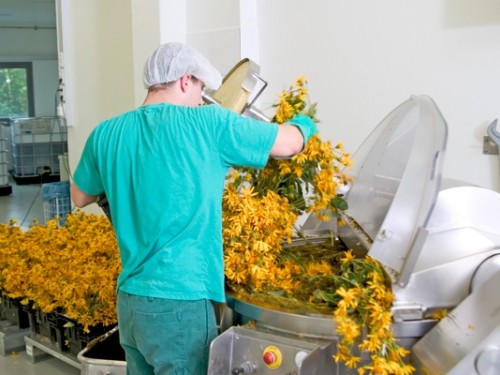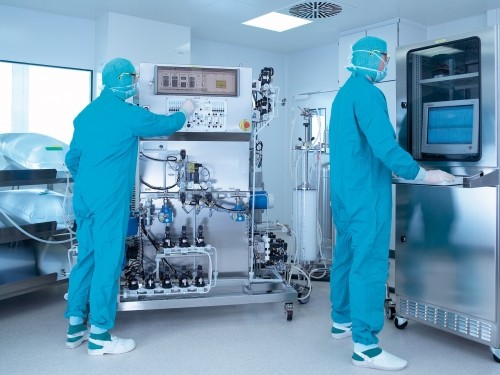DEPARTMENT OF ANALYTICAL CHEMISTRY AND CHEMICAL TECHNOLOGY OF FOOD ADDITIVES AND COSMETICS

The department prepares specialists for the bachelor’s and master’s degrees in the following fields of knowledge:
Branch of knowledge: 16 Chemical and bioengineering
Specialty: 161 Chemical Technology and Engineering
Educational programs:
Chemical Technology of Food Additives and Cosmetics (FAC)
Since 2005, the Department conducts training for bachelors and masters for the unique and the only educational program in our region “Chemical technology of food additives and cosmetics”. This is a relatively new specialty approved by the Ministry of Education of Ukraine in 2003 and entered into the “List of directions and specialties for training in higher education institutions”. Since 2018, the department has opened a new educational master’s program “Analytical control in the production of food and cosmetics”.
Modern food and perfume and cosmetics industries are based on the obligatory use of various nutritional additives and bioactive substances, respectively. Nutritional additives are natural or synthesized chemicals added to foods in order to provide them with certain consumer qualities though not used on their own as food. For example, these are preservatives, antioxidants, stabilizers, colorants, thickeners, emulsifiers, flavor enhancers. Bioactive substances of natural origin are widely used in the cosmetic industry as obligatory components of various cosmetic products. The range of dietary additives and cosmetics produced by domestic enterprises is very limited, but Ukraine has a high technical potential for organizing its production.
Highly qualified specialists in the field of FAC should know the technologies of production of food additives and the technology of their use, the technology of production of cosmetics for various purposes, be able to navigate in a wide range of cosmetic ingredients, have methods of analysis of nutritional supplements and components of cosmetic products, be able to organize industrial production. During their studies, students receive solid theoretical and practical knowledge in the field of food chemistry, food and cosmetics, biochemistry, microbiology, toxicology, chemistry of surfactants, chemical and instrumental methods for analyzing food products and cosmetics, organic chemistry of natural compounds, mathematical modeling of technological processes, equipment for the production of food additives and cosmetics, the bases of designing of productions. Specialists of this profile are needed at the enterprises of the chemical and food industry, which produce or use food additives; enterprises of the perfume and cosmetic industry, control and analytical laboratories, etc.
Why do you need a new educational program? The analysis of the labor market and the market of educational services testifies to the absence of chemist-technologists in Ukraine in the master’s educational-qualification level with the specialization in analytical control of production. At the same time, the widespread network of food and beverage industry enterprises causes the urgent need of highly skilled specialists for analytical control of their products.
What is analytical control? Is it the same analytical chemistry? What specialists in chemistry analysts will be different from chemist-technologists with master’s degree in the field of analytical control? Modern industrial enterprises cannot achieve high technical and economic indicators without organizing technical and analytical control of production at all its stages. In essence, such control is an integral part of every production process. It is executed by various services of the enterprise depending on the object of control. For example, executives of control operations may be representatives of the workshops and departments of the enterprise: chief technologist, chief power engineer, chief engineer, etc. The bulk of the control operations in the workshops and sections of chemical production is carried out directly by their personnel, with the participation of chemical analysts of production laboratories and should be controlled by a chemist-technologist. Therefore, in addition to the knowledge and skills of maintaining the technological regimes of the production process, the chemist-technologist must possess methods of chemical and instrumental analysis and to be familiar with modern methods of measuring the measurements.
Who can become a master for the educational program “Analytical control in production”? Only bachelors with a degree in FAC? Interestingly, today many students know the correct answer, but they often doubt that they will be able to expand or even reform the field of their professional knowledge at the next level of higher education. It is a question of the principle of “cross-entry” when students with a Bachelor’s level of education can enter a magistracy in any field of knowledge, even if it is different from the one in which they have already completed education. That is, not only bachelors of chemical technology, but also chemists, biologists or mechanics can apply for a magistracy from the “Analytical Control of Production” and after obtaining a diploma, have two higher education in various fields of knowledge. Many of us know the proverb “do not put all eggs in one basket,” but not everyone understands that this folk wisdom concerns not only eggs or money. This formula also works when you are looking for a job: the more you have a diploma, the more you will be interested in your potential employer.
Do I need to go to the magistracy? Higher education in Europe, and now in Ukraine, has three educational qualifications: Bachelor, Master and Doctor. Bachelor in Europe is a person with a higher education. The Master in Europe is the Master of your business, that is, the higher level of higher education, which allows you to work in more responsible (managerial) positions. The Internet is spreading the information that supposedly a magistracy should go only to those who want to become a teacher or a scientist. A master’s level does not oblige a graduate to go to science. However, participating in research in magistracy is a new experience in planning work, the practical use of acquired knowledge, the search and analysis of information that will always be useful in any field of activity. Therefore, the advice to students is very simple: do not postpone for the future, and use your chance to get higher education today!


